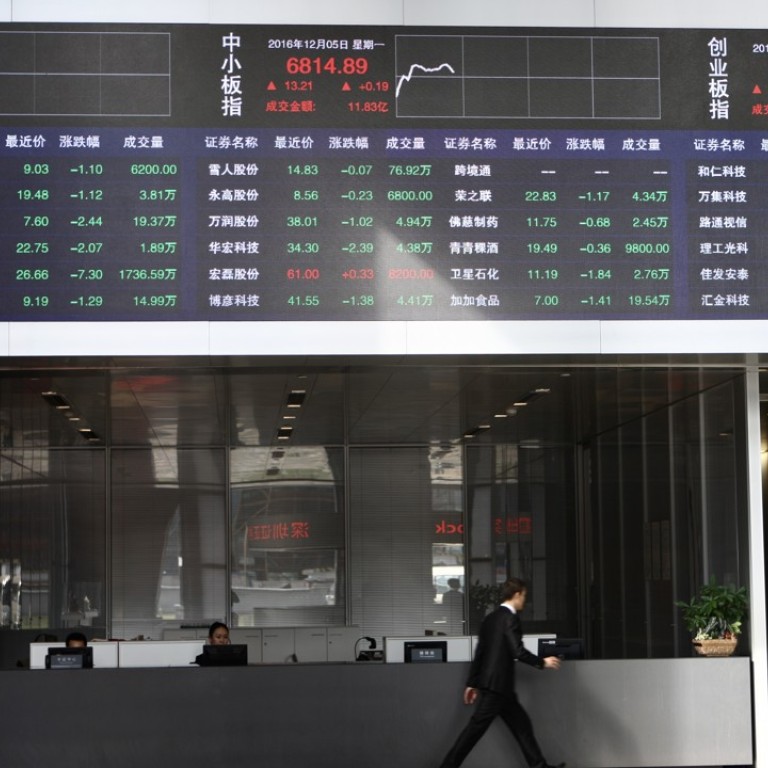
‘Our stock is a one-way bet’; 18 Chinese companies offer to protect employees against share losses
In an effort to shore up share prices, at least 18 mainland-listed companies have offered to compensate employees against losses
Buying Chinese stocks are now risk free investments for employees of some mainland companies.
At least 18 mainland-listed companies mobilised employees to buy their shares, and said any losses incurred will be covered by the chairman of the respective companies on condition that the purchased shares are held for at least 12 months.
Companies including Shenzhen Fenda Technology and Hunan Kaimeite Gases cited the need to stabilise the stock market amid “irrational” declines in share prices as reasons for soliciting the support of employees, according to company filings.
In recent times the securities regulator has introduced measures to bolster confidence in the stock market against a continued slide in share prices. The Shanghai Composite Index is down 4.5 per cent from this year’s high in April amid government-led deleveraging in the financial sector.
The China Securities Regulatory Commission has slowed the pace of initial public offerings and made it more difficult for insider selling by substantial shareholders, in the hope that restricting the stock supply will boost prices.
“That means the recent drop in the share prices has to some extent reached a level that substantial shareholders have recognised,’’ said Wu Kan, a fund manager at Shanshan Finance. “The common ground of these stocks is that they are down quite a lot.’’
The call for employees to buy risk free shares was greeted with a mixed response by investors.
Guangdong Anjubao Digital Technology jumped by the 10 per cent daily limit for three consecutive days after the maker of surveillance camera equipment called on its staff to buy its stock. But oil exploration services provider GI Technologies, which made a similar offer to its employees, dropped 6 per cent during the same period. So far this year, Anjubao is down 25 per cent and GI Technologies has tumbled 19 per cent.
The 18 companies, which are mostly smaller firms trading on the Shenzhen stock exchange, are a bit pricier than their peers. They are valued at an average of 45 times estimated earnings for the year, according to data compiled by Great Wisdom. That compares with the multiple of 40 times for the board hosting small and medium-sized enterprises on the Shenzhen bourse. The SME index tracking the bourse’s 861 smaller companies has fallen 5.1 per cent this year.
While some investors argue the stock purchases help to boost share prices, others question the purpose of the scheme. Of the 18 companies, at least four have their shares pledged as collateral for financing and two have plans to sell new shares.
In both cases, stabilising share prices are important to their stock pledges and fund-raising plans.
For instance, Hunan Kaimeite’s biggest shareholder uses 158.8 million shares, or 43 per cent of its stake in the company, as collateral for borrowing. Meanwhile, the pledged stocks of Shenzhen Clou Electronics account for 95 per cent of the interest the No 1 shareholder has in the company.
“The complicated motivation for stake increases by shareholders cannot be neglected,’’ said Tu Jun, a strategist at Shanghai Securities. “So that can only be a reference and not become the core basis for investors to make decisions.”

